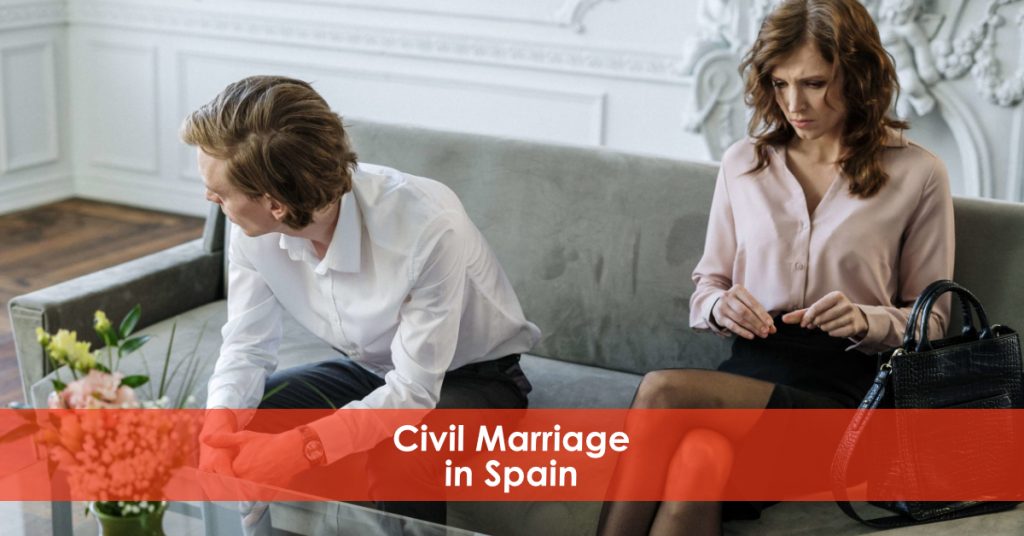In today’s globalised world, it is becoming increasingly common for people of different nationalities (British, German, French, Spanish, Italian, etc.) to move permanently to Spain, and choose to get married in our country. In this week’s article we discuss the civil marriage in Spain between foreigners. Documentation, requirements, and everything you need to know about the subject.
Authority to officiate a civil wedding in Spain.
In Spain there are different authorities before which you and your partner can get married. At the Town Hall, through a Notary Public, in Court/Civil Registry, etc. The procedure in all these cases is very similar and the documentation necessary is practically the same. However, there are some differences that should be highlighted, which we will analyse below.
The “matrimonial file”. Legal requirements.
In order to carry out a civil marriage in Spain, in any of the cases described above (Notary’s office, Court, Town Hall, etc.), the process begins with the so-called ‘expediente matrimonial’ (marriage file). This is an administrative procedure whose purpose is to check that the individuals who want to get married have the capacity to do so. In other words, it is a matter of checking that there is no legal impediment to the celebration of the marriage. (age, previous marriage, etc.)
What documents do I need to get married in Spain?.
The documents that you and your partner must obtain, in order to start the civil marriage procedure in Spain are:
– Your identity documents or passport of your nationality.
– Certificate of census registration.
– Birth certificate.
– Certificate of single status / Certificate of no impediment / Certificate of matrimonial capacity. This document, generally issued by the consulate or embassy of your country in Spain, is essential. In addition to confirming your marital status, the purpose of this certificate is to establish precisely what requirements may exist in your country of origin for getting married. Consequently, its content, will depend largely on your nationality and your personal circumstances: whether you are divorced, single, widowed, etc.
All foreign documentation (birth certificates, certificate of matrimonial capacity, etc.) must be duly translated into Spanish by a sworn translator. And it must also have the Hague apostille or be legalised. Except in some specific cases, if the documents are issued by countries of the European Union.
Can I start the process at any Notary’s Office or at any Civil Registry Office?.
No, civil marriage procedures must always begin at the Town Hall, Notary’s Office, or Court of the municipality where you or your partner are census registered.
If you wish to carry out the procedure before a Notary Public (the process is usually quicker), you must address the Notary Association of your Autonomous Community. There, a Notary Public will be assigned to your “matrimonial file”. Once it is confirmed that all the documentation is correct, you can choose the Notary that you prefer to officiate the marriage.
Conclusions.
Civil marriage in Spain requires a series of documentation, bureaucratic procedures, etc., which are even more complex when one of the parties is a foreign national. At White-Baos Lawyers we are ready to help. Do not hesitate to contact us for expert legal advice.
The information provided in this article is not intended to be legal advice, but merely conveys information relating to legal issues.
Carlos Baos (Lawyer)
White & Baos.
Tel: +34 966 426 185
E-mail: info@white-baos.com
White & Baos 2024 – All Rights Reserved.
